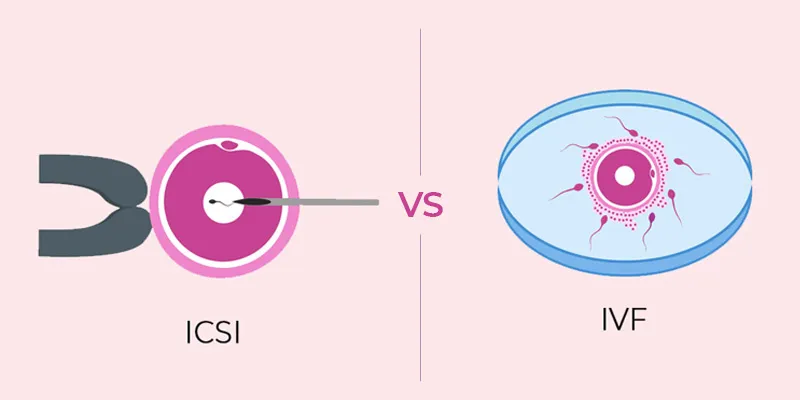Comparing ICSI and IVF Procedure: Choosing the Right Fertility Treatment
November 21, 2023
In the quest to overcome fertility challenges, couples often find themselves considering various treatment options. Two commonly recommended methods are in vitro fertilisation (IVF) and intracytoplasmic sperm injection (ICSI). These techniques have revolutionised modern medicine and offer hope for couples who are struggling to conceive. In this article, we will explore the differences between IVF and ICSI, their success rates, and how they can help you achieve your dreams of becoming a parent.
What is IVF?
In the IVF procedure, eggs are retrieved from a woman's ovaries and fertilised with sperm in a laboratory setting. The resulting embryos are then transferred back into the woman's uterus.
What is ICSI?
ICSI is a specialised form of IVF procedure where a single sperm is injected directly into an egg using a microscopic needle. ICSI is typically used when there are issues with male infertility, such as low sperm count or poor sperm motility.
Key Differences between IVF and ICSI
Some of the key differences between IVF procedure and ICSI are:
- Fertilisation Process: In conventional IVF procedure, multiple sperm are placed near an egg in a dish in hopes that one will naturally penetrate the egg. In ICSI, a single sperm is selected and directly injected into an egg to ensure fertilisation.
- Indications: IVF procedure is suitable for a variety of fertility issues, including female factor infertility, while ICSI is primarily used when there are male infertility concerns such as low sperm count or poor sperm motility.
- Cost: ICSI typically adds an additional cost to the IVF procedure due to the additional laboratory techniques involved.
Which Treatment is Right for You?
The decision regarding whether to pursue IVF or ICSI should be made after consultation with a fertility specialist who will evaluate your unique situation. Factors such as the cause of infertility, age, and previous treatment outcomes will be considered in determining the most appropriate treatment plan.
In conclusion, both IVF and ICSI offer hope to couples struggling with infertility. The decision between the two should be made in consultation with a trusted fertility specialist who can guide you through the process and provide personalised care. Remember that your journey towards parenthood is unique, and seeking support from a renowned fertility clinic like Apollo Fertility can make all the difference.
Both ICSI and IVF procedures are generally safe, but like any medical intervention, they carry some risks like multiple pregnancies, ovarian hyperstimulation syndrome, or a small risk of infection or bleeding.
ICSI does not increase the risk of genetic abnormalities compared to natural conception or conventional IVF procedure.
Yes, multiple rounds of IVF or ICSI can be done if needed, depending on various factors such as age, response to treatment, and overall health.